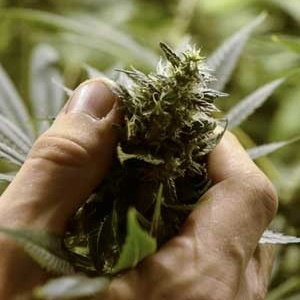
Dagga is the most common illicit drug abused in South Africa and while some people argue that it holds medicinal benefits, a psychiatrist from the Stellenbosch University maintains that there is not yet enough evidence to support this.
“Although this drug is viewed as an innocent herb by many, there is increasing concern about adverse health consequences,” said Dr Lize Weich, senior psychiatrist and lecturer at Stellenbosch University.
Read: Is there a place for dagga in medicine?
She said there is concern about the popular belief that cannabis is “medicinal” and thus “harmless and safe”, especially among children and adolescents.
The developing adolescent brain is particularly vulnerable to the adverse effects of cannabis use, Weich said.
“It is the most common illicit drug used by this group and has been linked with poor educational attainment, dropping out of school, later unemployment and lower life satisfaction and even with a decline in IQ.”
She said adolescent onset cannabis use has also been linked to various psychiatric problems in this age group, including an increased risk of developing schizophrenia, which is a brain disorder that affects the way a person behaves, thinks and sees the world.
Read: 'I used cannabis oil to cure my cancer'
Weich emphasised that some early studies may suggest potential medicinal qualities from cannabis use, including relief of neuropathic pain, increasing appetite and treating glaucoma, but there is not yet sufficient evidence to support its efficacy and rule out harms and human trials in this regard is still largely lacking.
“It is clear that legalising cannabis for medicinal use is an important topic that needs careful consideration. Much more research is required to establish efficacy along with a clear public message highlighting risks, especially among the youth,” she noted.
The most potent agent the cannabis plant contains is delta 9-tetrahydrocannabinol (THC). THC acts by activating the endocannabinoid receptor system, a delicate system that modulates the balance in other neurotransmitter systems, thereby ensuring optimal functioning of multiple biological functions including learning, memory, stress, appetite, movement and pain perception.
Weich highlighted some statistics about cannabis use:
- It is estimated that about one in nine cannabis users will become dependent, while those who start using it in their teens have a one in six chance of becoming dependent.
- It is also linked to other medical complications, including heart attacks, as well as arrhythmias (abnormal heart rhythms) and strokes.
- Lung problems, like chest infections, chronic bronchitis and emphysema are common among cannabis users.
- Cannabis smoke also contains cancer causing agents similar to that found in tobacco smoke and that may predispose an individual to lung cancer.
- Cannabis use impairs driving ability and users are at a higher risk of car accidents.
- Its use in pregnancy has been linked with neuro-behavioural problems in children.
- Long-term cannabis use can also affect memory and the ability to process information.
- Cannabis intoxication can also lead to multiple psychiatric complications, like panic, anxiety, depression or psychotic symptoms.
- Heavy cannabis use has been linked to reduced pro-social goal-directed behaviour, apathy and diminished drive, referred to by some as the 'amotivational syndrome'.
Parachuted into the spotlight
In April the Department of Social Development and the Central Drug Authority (CDA) convened a two-day conference aimed at starting a national discussion on whether dagga for medicinal use should be legalised.
The legalisation of medical marijuana was parachuted into the spotlight in South Africa after the late Inkatha Freedom Party MP Mario Oriani-Ambrosini’s “medical innovation bill” was revived in parliament.
The bill relapsed when Ambrosini died in August 16 last year after battling with late-stage lung cancer for more than a year. He admitted to using marijuana for medicinal purposes to treat his cancer when he first proposed the bill to parliament.
The bill calls for the immediate establishment of a medical centre where at least 100 patients can be legally treated with medical marijuana, a treatment Ambrosini described as “effective and harmless”.
Cannibis was banned in South Africa in 1928; however, the country is ranked as one of the top producers of the drug globally.
Also read:
Psychosis is five times more likely for dagga smokers




 Publications
Publications
 Partners
Partners














